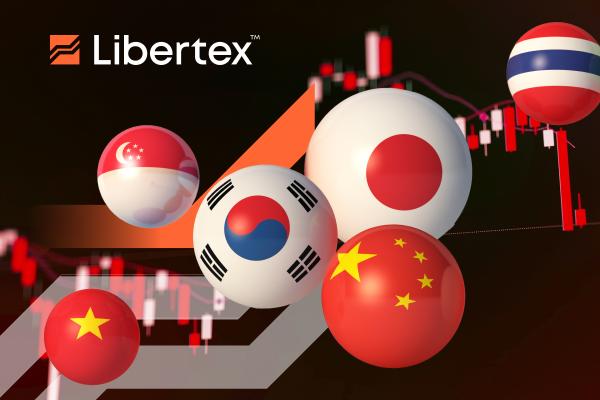When we think about stocks, our focus tends to stay on the US and Europe. But just as Asia remains one of the world's biggest producer and consumer markets, its stock indices — from the Hang Seng and Shanghai Composite to the NIFTY 50 and Nikkei 100 — are more than worthy of our consideration. Indeed, the NIFTY 50 index alone has gained more than 2,500% since its inception in 1999, while the major Chinese indices have at least kept pace with their US counterparts. But beyond the potential upside, Asian stocks offer something even more valuable: diversification with assets that have a low correlation with their US and European equivalents.
Recent history has proven that this isn't always a good thing. China's big three tech stocks — Alibaba, Baidu, and Tencent — are actually down 30%, 40% and 5%, respectively since January 2023. During the same time period, the S&P 500 and Nasdaq 100 have gained around 35% and 90%, respectively, with individual stocks like Nvidia up as much as 900%. But now that China's deflation worries appear to be assuaged and consumer sentiment is improving, many have tipped the country's heavily undervalued tech giants to post big gains in 2024 and beyond. Meanwhile, new-found political stability in India is expected to have a similarly positive effect on equities. So, what are the main factors that will drive growth across Asian stocks?
Economic healing
The post-pandemic period has been tough for many countries economically, but while this hasn't impacted US stock indices as harshly as their Asian counterparts, the aggregate numbers don't really tell the whole story. The paper gains are actually attributable mostly to a few overperforming tickers, mainly in the AI sector. The Nasdaq 100 is up almost 1,000%, yes, but the Russel 2000 has been largely stagnant.
China's stock indices are nowhere near as asymmetrically weighted, and the absence of a major breakthrough technology like Nvidia's has kept growth largely in check. Now that the consumer price index has risen a modest 0.3% in May and the threat of deflation has been more or less averted, Chinese companies are expecting to report stronger domestic earnings and become less reliant on admittedly strong exports. The talk of draconian tariffs on Chinese EVs from both the US and EU has thrown somewhat of a spoke in the works of major sectoral players like BYD and Contemporary Amperex Technologies, but Chinese diplomats are optimistic about finding a compromise with at least European lawmakers.
Unbeatable value
Growth stocks are notorious for their high price-to-earnings ratios and low dividend yields, with the tech industry being one of the worst offenders. Indeed, Amazon, Tesla, and NVIDIA all have P/E ratios near or significantly above 50 and dividend yields of either zero or well under 1%, which is effectively negative in the current context of >5% interest rates. Meanwhile, China's big three tech giants all have P/E ratios below 30, with Alibaba offering a very generous 2.71% dividend yield to boot.
When looking at pricing, the very fact that they have stayed more or less stagnant during recent growth spurts in the US means their valuations are extremely fair compared to their global competitors. Indeed, Tencent is virtually at the same level it was back in March 2020, while Alibaba is over 60% cheaper than it was at this same time. Baidu is also more than 30% cheaper than it was in Q1 2020. When we also consider the competitive advantage Chinese tech firms have over the long term — with their huge market, limited external competition, and government support — the potential for significant gains over time is strong. Both Tencent and Alibaba are shaping up to be major players in cloud computing, AI, payment systems, and IoT, which are the key industries of the coming decades. This focus will help them grow their fundamental business across Asia and the world, competing even with US firms like Amazon and Alphabet.
Trade CFDs on Asian stocks and more with Libertex
Libertex offers CFDs on a wide range of underlying assets, classes ranging from commodities, metals and forex to ETFs, options and, of course, stocks. The Libertex platform gives you the ability to open long or short positions in stock CFDs. In addition to key Asian indices like the China A50, Hang Seng, and iShares China Large-Cap, Libertex provides access to individual Chinese CFD stocks including Alibaba, Tencent, and Baidu. For more information or to create an account of your own, visit www.libertex.com/signup today.


